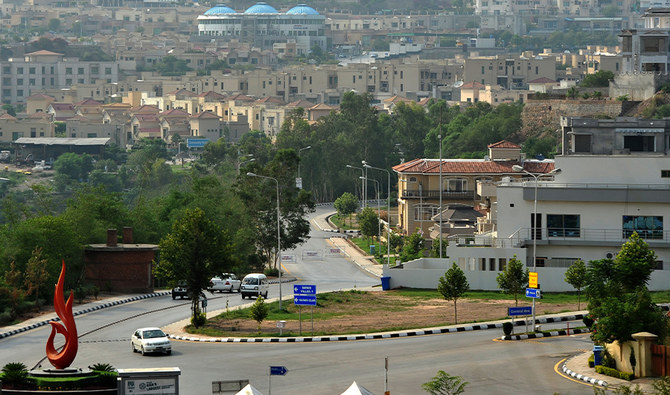KARACHI: Construction in a flagship program to build five million affordable homes would start in January, a director at the Naya Pakistan Housing & Development Authority (NAPHDA) has said, after the government had worked to remove all legal hurdles to the project.
The Naya Pakistan Housing Program was one of Prime Minister Imran Khan’s electoral promises in 2018 to address the country’s housing backlog of an estimated 10-12 million units. According to World Bank and government data, the gap is increasing every year by roughly 350,000 units.
“From January 2021 onwards, they [builders] will start constructions,” Sohail Sarwar Jaura at NAPHDA told Arab News, saying work on the project had been slow due to legal hurdles that had now been resolved.
“It took two years to complete legislations and now we are scrutinizing over 1,000 mega schemes submitted by private sector builders who will be issued no objection [clearance] certificates by Dec. 31, 2020 for development of housing societies, some as big as involving 5,000 houses,” Jaura said.
In January 2020, through an act of parliament, the government constituted the NPHDA to regulate housing and real estate development activities in Pakistan from the point of land identification to setting up schemes.
The government has also implemented new rules to promote construction activities, such as imposing fixed income tax (10 percent) on investment, exempting tax authorities from questioning sources of income and imposing uniform tax rate of two percent on property transfers across the country. The central bank has now also allowed banks to extend financing to builders and developers, setting a mandatory target of five percent of their loan portfolio while buyers will get subsidized financing at five percent on a Rs 3.5 million loan and seven percent for Rs 6 million.
Around 2 million people in the country of 220 million have so far registered with NAPHDA for low-cost housing, according to project managers. Some 1.7 million of the applicants have been declared eligible and will get a subsidy of Rs300,000 ($1,900) for housing in the upcoming projects.
Besides the private sector, local development authorities in Lahore, Karachi and Peshawar would be also facilitated by NAPHDA under the upcoming project, Jaura said.
According to builders, however, regulatory obstacles, as well as a culture of endemic corruption, were slowing the process in Karachi, Pakistan’s financial hub and the capital of the Sindh province.
“Federal government has taken many unprecedented steps to streamline the construction sector; however, in Sindh the process is slow,” Muhammad Hassan Bakshi, a member of the prime minister’s taskforce on housing and former chairman of the Association of Builders and Developers of Pakistan (ABAD), told Arab News.
He said that in Sindh some three-four private sector players were planning projects under NPHP, but 300 designs were still pending approval.
But Jaura said all regulatory and development authorities across the country were bound to issue clearance certificates for NPHP within 60 days.
“The relevant departments are now legally bound to respond within 45 to 60 days if the project is approved or not, unlike in the past when it would take three to four years,” he said.
He said the government was incentivizing investment in the construction sector, including by providing financing at low rates and barring tax authorities from questioning investors’ sources of income under an amnesty scheme announced last year. Tax exemption will be 90 percent on investment in housing projects, he added.
“For the first time in history of the banking sector the loans will be extended at 5 percent markup for housing, and the buyer will be paying only 10 percent of the cost. Ninety percent of the cost will be made available through bank financing repayable in 20 years,” Jaura said, adding that people who earn Rs40,000 per month would be able to pay installments as rent.
















